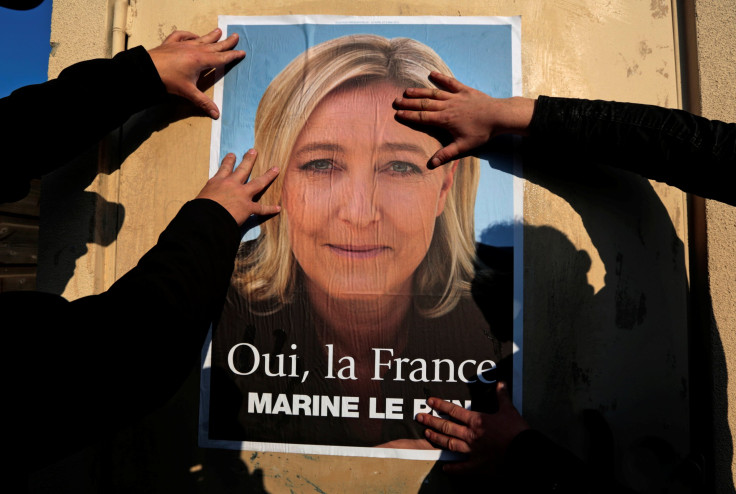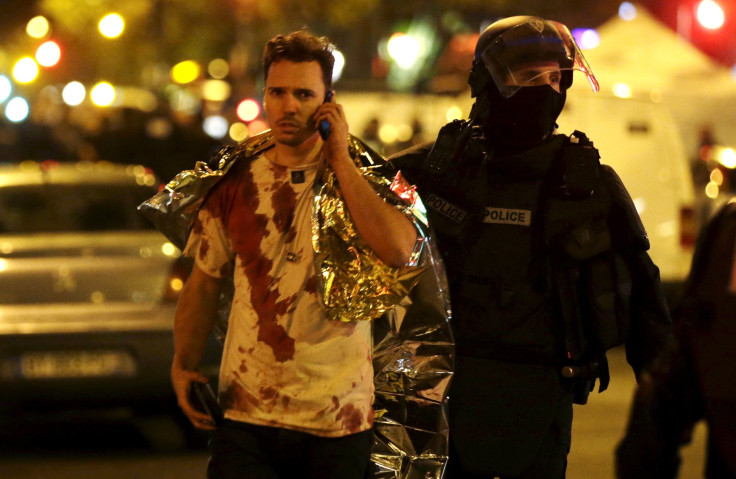ISIS In Paris: After Attacks, Will France's Donald Trump Become President Because Of Islamic State Terror And Refugee Fears In Europe?

In the year since ISIS-coordinated attacks in Paris took the lives of 130 people and injured hundreds more, French politics have taken on a tone that is nationalistic, populist and conservative. Still reeling from a January 2015 attack in which Al Qaeda-affiliated militants massacred a dozen people while storming the offices of satirical magazine Charlie Hebdo, the French public were traumatized by the deadly events in November 2015 and right-wing politicians have seemingly sought to stroke these fears.
On Nov. 13, 2015, three teams of ISIS militants conducted Europe's deadliest terror attack in over a decade. First, three suicide bombers detonated themselves near the Stade de France during an international friendly soccer match between France and Germany, killing a passerby. At around the same time, a team of gunmen wearing suicide vests assaulted restaurants and bars in a popular nightlife district, murdering dozens. In the deadliest attack of the night, a third team shot up the Bataclan music hall during a crowded rock concert, before blowing themselves up. Eighty-nine people were killed.
French President Francois Hollande, who was in attendance at the stadium targeted that night, declared a state of emergency. One year later, that state of emergency is still in place after another terrorist attack on Bastille Day in Nice killed 89 and compelled the national assembly in July to extend the measure for another six months. The state of emergency gives French police increased authority to conduct searches and place individuals under house arrest.
The government was criticized by some for its move, viewed as an expansion of its power over the public. Last month, Emmanuel Macron, France's former economic minister who quit his post in August in protest of the government's economic policies and who many have speculated is preparing to make a bid for the presidency next year, called for an end to the state of emergency.
“The state of emergency was necessary at the beginning but its endless prolongation raises legitimate questions,” Macron said at a demonstration in Le Mans.

The threat of terror has become a rallying point, however, for France's conservative politicians. Hollande is already the least popular president in French history and has frequently been criticized for mishandling national security. With conservative primaries coming up later this month, far-right National Front leader Marine Le Pen has emerged in the polls as one of the top two candidates for president.
Le Pen has been compared to President-elect Donald Trump in many ways. She is a populist leader who stands firmly against immigration, terrorism and mainstream politics. Like Trump, she has also been accused of xenophobia, especially toward Muslims. She was quick to congratulate Trump on his electoral victory Wednesday, claiming it was the beginning of a worldwide movement. Her chief strategist, Florian Philippot, commented as well.
"Their world is collapsing, ours is being built," he tweeted.
This populist wave first received global attention earlier this year when the U.K. voted to leave the E.U. The referendum, known as Brexit, was largely spurred by the English public's rejection of E.U. immigration policies. If Le Pen manages to secure the conservative nomination and then ascends to the presidency, she said she would demand a nationwide referendum on "Frexit."
While terror attacks have occurred in Europe in recent years prior to those in Paris last November, no single day has caused more bloodshed and had wider ramifications on Europe's political scene. The attacks, along with the Charlie Hebdo killings last year and the Bastille Day attack earlier this year, have helped to steer the narrative of international politics toward national identity and against refugees and immigrants. France will have to face this political fallout in next year's elections.
© Copyright IBTimes 2024. All rights reserved.












